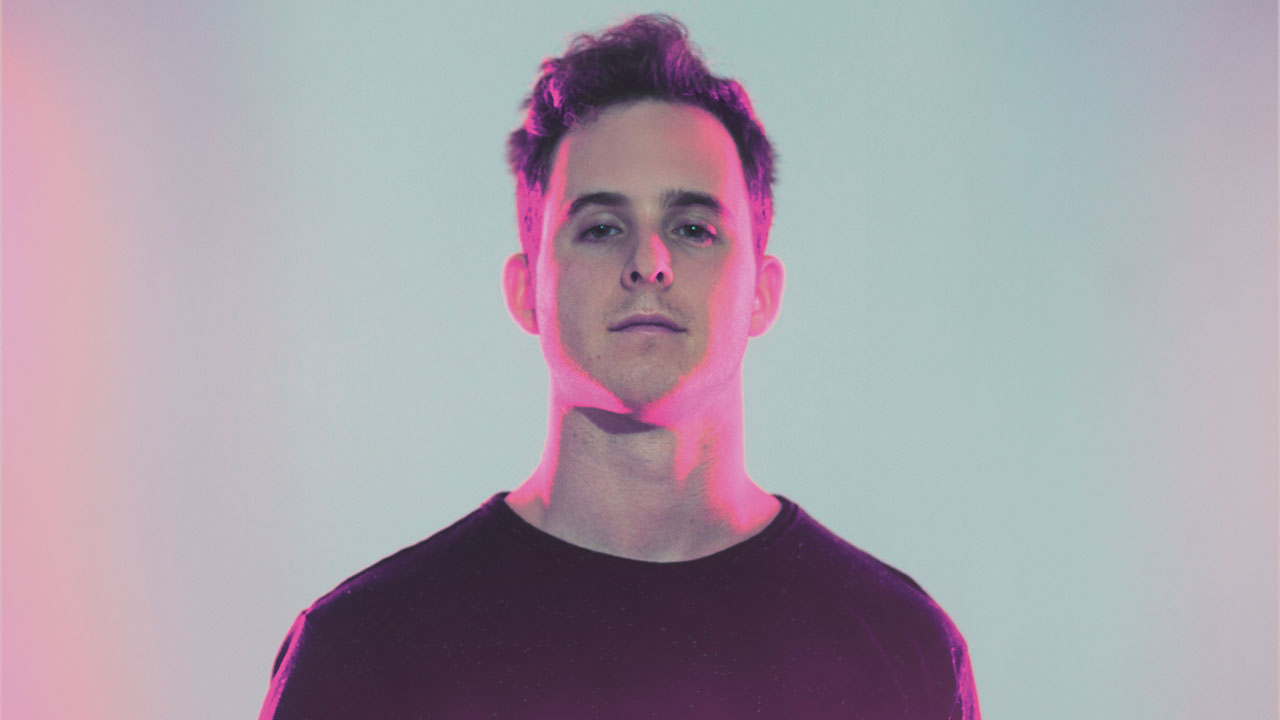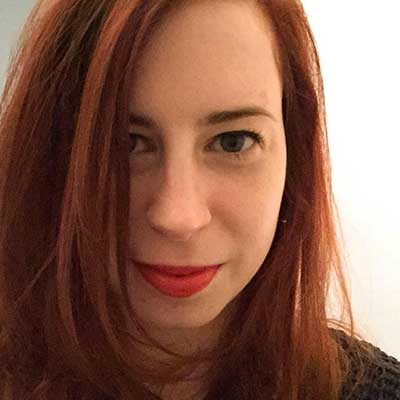The Barber Shop Studios sit on the picturesque Lake Hopatcong, the largest fresh- water body in New Jersey. Last September, when Northlane arrived to record Mesmer with producer David Bendeth (Of Mice & Men, Papa Roach), the leaves were beginning to turn and the vacation season had wound down, bringing a sense of tranquillity to the area. Amid these beautiful surroundings, Northlane would confront some of their most painful thoughts.
“Pretty much from the get-go, David tore us apart and broke down who we were,” says singer Marcus Bridge today, over a Skype call from Sydney, Australia. “I’m a very shy guy, a nervous kind of dude. So for this to happen early in the recording process, it opened me up.”
On the first day, David sussed out the jetlagged quintet by rowing them onto the lake for casual chats and beers. Then he began conducting psychological exercises, designed to expose their dynamic.
“He threw a Coke can on the ground of the control room, and he was like, ‘You guys have two minutes to figure out how to pick this up, but you’re not allowed to use your hands’,” remembers straight-talking guitarist Josh Smith. “It was really hard. He watched the way we delegated roles and… we royally fucked it. But he was able to dissect it and make us work better together as a unit, and that really helped on this record, because it was so much more collaborative than anything we’d done before.”
Northlane have long written about the connections between people and their environment – represented most literally on Mesmer by the conservation warnings of Savage and Solar. But this record goes a step further, straying into the private realm of loss, and what happens when relationships break down or are unexpectedly ripped away. 2016 was a difficult year for the whole band on this front, and they worked together to collectively realise some of those emotions.
“I lost both my great-grandmothers, Nic [Pettersen, drums] lost his grandmother, we lost [Architects’] Tom Searle, and we lost a close friend that we used to tour with,” remembers Josh. “I found out my partner had been cheating on me, Marcus’s relationship fell apart at the exact same time… all of these things happened within three or four months while we were writing the record. Personally, it was not an easy time, but writing about it was therapeutic. And I think especially to Marcus’s credit, he did a great job of transferring that pain into raw emotion in his vocals in these songs.”
While Marcus’s voice does indeed soar and swoop with passion, or dip down into darker, throatier realms, the candour of the lyrics is also startling, bearing a brutal honesty that never shies away from the subject at hand. Veridian directly addresses the death of Josh’s great-grandma at the age of 94, and amid imagery of suffering comes the distressing roar, ‘Let me leave this world in peace, turn off the machine, turn off the machine’.
“In Australia, euthanasia is illegal,” begins Josh. “You’re watching this person, and their mind is eroding, they’re constantly in pain, they have no ability to take care of themselves with dignity, and being stuck in that environment is something that I find absolutely horrible and one of the most painful things I’ve had to witness. Nic had a similar thing happen to him. Previously, I wouldn’t have written about it for Northlane, but we decided this time that if we had an experience, we weren’t going to be scared of telling the world our story.”
Paragon is their touching tribute to Tom Searle, composed by guitarist Jonathan Deiley, who was a close friend. Josh wrote the lyrics using fragments from Architects songs and the Rise Against song, Architects, finishing with a promise that people won’t forget his message.
“He’s one of the most inspiring people I’ve met in my life, and his early departure from this world was something that affected us all very deeply,” says Josh. “But Jon more than anyone. He was probably the only person that he’d ever truly related to. Tom really got him, and they wanted to write music together, and do all these things that never eventuated. I was tasked with writing lyrics, and every line has been adapted from something he had to say.

Nowhere is their frankness more obvious than on Fade, where Marcus explores his difficult relationship with his father, who died from a drug overdose five years ago. Harrowingly, the singer, then only 19, was present on the day his body was discovered. Rather than a straightforward tribute, it lays bare the conflicting feelings that linger after an abusive childhood.
“It was always a struggle writing about him, because I wasn’t sure how to frame it,” Marcus explains. “It’s hard for me to be completely positive and loving of him, because of all the awful stuff that’s happened, and all the stuff he did leading up to his passing. Unfortunately it was, I feel, inevitable. But you don’t always want to be ragging on him after he’s passed away, and there are moments you do have that were good.”
Memories of tough times stretch back a long way, and confiding in David, he revisited episodes from his past. One took place when Marcus was eight or nine, and his family were living in an apartment in the city, where his dad was dealing drugs. Him and his younger sister were sharing a mattress on the floor, and the cricket was on. He recalls Brett Lee hitting a six, before he fell asleep.
“I remember waking up to someone breaking the door down and pointing a gun at my dad, and the chaos of that – yelling, ‘Not in front of the kids’ blah blah blah, and the police coming. All of these stories are along that same vein of things that are pretty outrageous.”
There was another time when they were at a club during the day, in the then-sketchy Kings Cross area of Sydney. A man called Fat George – Uncle George to the kids – set Marcus up to play at the pool table, while the adults talked.
“Later I figured out this dude is a drug dealer as well, a big figure in it all at the time,” he says.
When his dad wasn’t involved in drug dealing, he was gambling instead, even moving the family into an apartment at a casino.
“I think he’d won AU$100,000 playing Blackjack, and a few days later he lost it all,” he recalls. “I guess he’s always had that addictive personality and couldn’t help himself.”
As for those good times, they were few and far between.
“In the end, it really is not as much as you’d like it to be,” he says. “There are times when we’d watch Dragon Ball Z together. I’ve got this photo of me in a tree, and that’s when he’d take me to the park a lot and let me climb this particular one I used to like climbing. He did try as hard as he could, but his addictive personality overshadowed it quite a lot.”
Was there ever a time when you felt like you were in danger?
“Well, yeah… I guess I could be quite scared of my dad as well. At times he’d hit us, as well as all of this crazy stuff going on.”
After his father passed away, Marcus had therapy and found catharsis in performing, and today says he’s considering writing a book about his experiences. As a relative newcomer to Northlane, joining two and a half years ago for last album Node, he was initially hesitant about bringing the subject to the band, but says he found the experience therapeutic.
“In the last year and a half, I’ve felt a lot more comfortable in Northlane,” he says. “It’s funny, I used to pull back on how I performed. I used to play in a pop-rocky band [Sound Of Seasons] where I’d be more flamboyant. But nowadays I’ve reverted to that. You’ll see me flailing my arms around being weird, bringing something new and different to performances.”
It’s an apt image for describing Northlane as a whole. Mesmer was released as a surprise album, yet hit Number 3 on Australia’s ARIA charts, their open approach capturing the minds of thousands of people. It is the shining, expansive, bold sound of a band growing into their own skin, and becoming more confident with who they are.
Mesmer is out now via UNFD. Northlane play Download on Friday, June 9
What does Mesmer mean?
Uncovering the meaning behind Northlane’s cryptic title
Go on, then. Enlighten me!
The name is taken from Franz Mesmer, a German physician born in 1734, who came up with the theory of animal magnetism.
What’s that?
He believed that invisible fluid in the body acted according to the laws of magnetism, and there was a transference of energy between living things. He treated patients with baths of ‘magnetised water’ or the laying on of hands, and developed early hypnotism techniques – the word ‘mesmerise’ is derived from his name. In 1784, the president of The French Academy Of Sciences called an investigation into his methods, and they were discredited.
What does it mean to the band?
“It’s definitely something that’s a theme in a lot of Northlane music – not necessarily animal magnetism, but that all things are connected,” says Marcus. “For the most part, we just thought what he researched was cool,” adds Josh. “It was debunked, but there’s so much about the universe that can’t be explained, I thought it was interesting.”
Josh Smith's track-by-track guide to the new Northlane album

